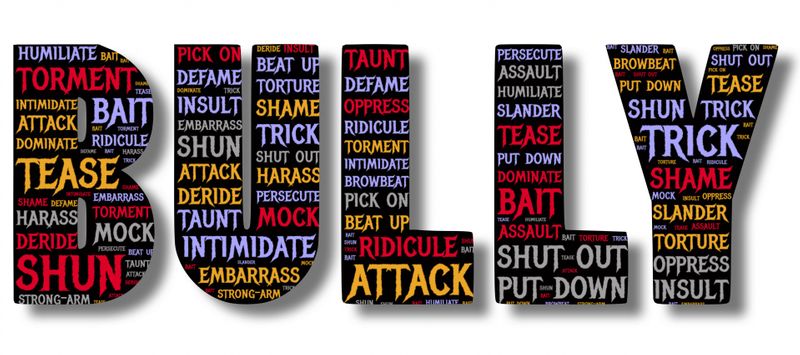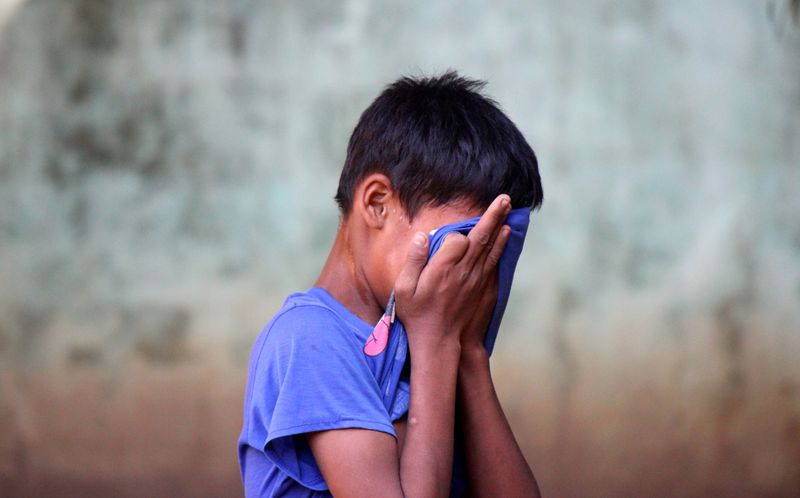
What is Bullying?
In 2014 the U.S. Department of Education and the Center for Disease Control defined bullying as having these components:
Aggressive behavior
Power imbalance
Repeated or likely to be repeated.
Middle schoolers are most likely to be bullied. Most bullying in this age group is done in person. It involves name calling, spreading rumors, teasing, hitting, pushing, threatening or sexual comments. Sometimes kids are bullied online.
Bullying can have a lot of long-term consequences that may last into adulthood.
Psychological Consequences of Bullying
 Photo by Lucas Metz on Unsplash
Photo by Lucas Metz on UnsplashDepression, anxiety, low self-esteem, self-harming behaviour (especially in girls), alcohol and drug use and dependence, aggression, and involvement in crime or violence are some psychological effects of bullying (especially for boys). Bullying can cause mental health issues in kids of any age, but it is even more likely to happen to kids who already struggle with mental health issues.
Bullying that occurs on computers or mobile devices, or "cyberbullying," has also been connected to mental health issues. Children who have experienced cyberbullying report higher levels of depression and suicidal thoughts, as well as more emotional distress, hostility, and delinquency, compared to peers who have not.
Mental Consequences of Bullying
People who are bullied can experience depression and anxiety . They may feel rejected, isolated and alone. These feelings can turn into sadness, hopelessness and despair.
Being bullied can also cause trust issues and problems communicating with other people.
All these problems can negatively impact academic performance and concentration. Grades may go down suddenly. Bullying can even cause a loss of appetite and difficulty with sleep.
In extreme cases, victims of bullying may become suicidal or retaliate with violence.
Quiz
Consequences of being bullied include
Physical Consequences of Bullying
 Photo by Markus Spiske on Unsplash
Photo by Markus Spiske on UnsplashBeing hurt during a physical attack is one of the more obvious and immediate physical effects of bullying. But over time, the persistent stress and trauma of bullying can also cause physical issues. A bullied child may experience chronic pain, somatization, bedwetting, stomachaches, headaches, heart palpitations, and difficulty falling or staying asleep, among other symptoms (i.e., a syndrome of distressful physical symptoms that cannot be explained by a medical cause).
Bullying also causes an increase in cortisol, a stress hormone that the body naturally produces after a stressful experience. Bullying-related stress can affect hormones and the immune system. According to imaging studies, bullying can impact brain activity and functioning, which may help explain the behaviour of children who have been bullied.
Academic Consequences of Bullying on Victims
 Photo by Museums Victoria on Unsplash
Photo by Museums Victoria on UnsplashAccording to a growing body of research, bullying can affect how well kids and teens perform in school. Starting in kindergarten and continuing through high school harms grades and test scores.
Social Consequences of Bullying
 Photo by Helena Lopes on Unsplash
Photo by Helena Lopes on UnsplashThe long-term consequences of bullying can be seen in how it affects social dynamics. When bullying is present in a social group, it can create a toxic environment where individuals feel unsafe and uncomfortable. This can lead to the exclusion of certain individuals from the group, causing them to feel isolated and alone.
Bullying can also lead to the formation of cliques and hierarchies within social groups. This can create a power dynamic where individuals who are perceived as weaker are targeted for bullying. It can also create a culture of fear and intimidation, where individuals are afraid to speak up for fear of becoming the next target.
Consequences of Bullying for Bystanders
Witnesses of bullying can be victims too.
Consequences for bystanders may include include:
An increase likelihood of using alcohol or drugs.
Increased depression or anxiety.
Feelings of helplessness.
Missing or skipping school.
Quiz
What are some consequences witnesses of bullying can suffer?
Take Action
Now that you've learned about the consequences of bullying on victims and witnesses of bullying, the next time you see an incidence of bullying, ask yourself:
How might the victim feel?
How might the bystanders feel?
How might you help them feel not so alone?
Your feedback matters to us.
This Byte helped me better understand the topic.
